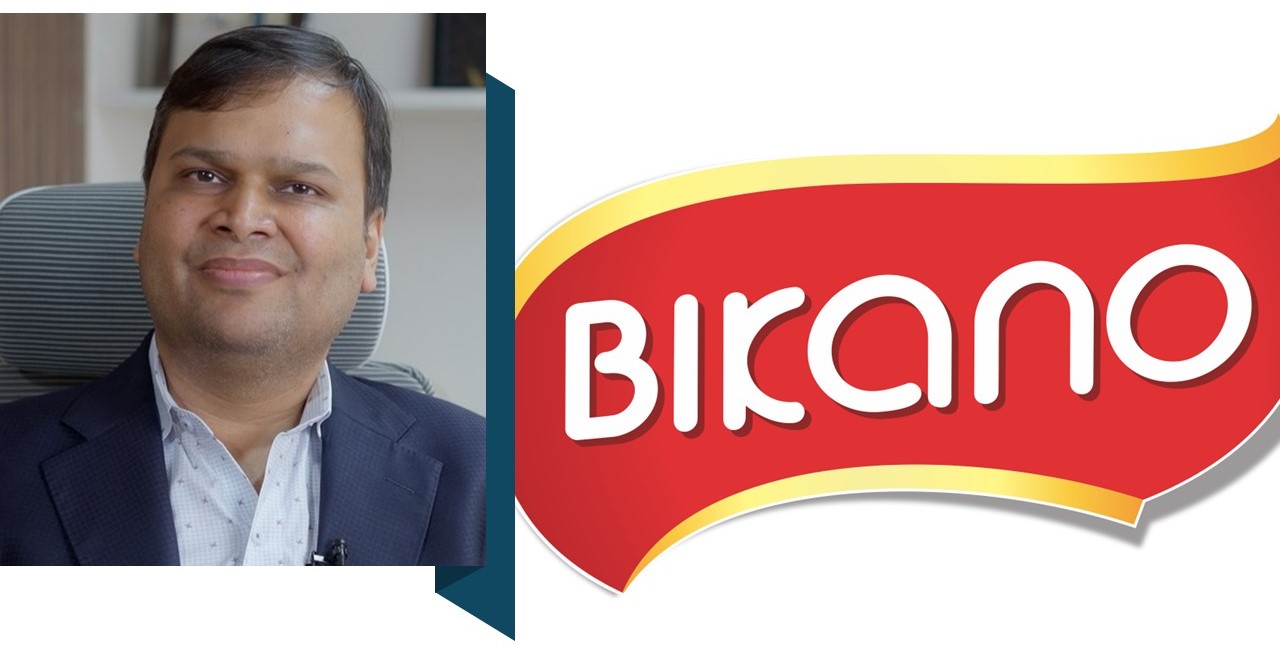Firms must diversify supply chains, enhance sustainability practices, optimize operational efficiencies, and strengthen regulatory adherence.
By MANISH AGGARWAL
(Director, Bikano, Bikanervala Foods Pvt Ltd)
In recent times, India’s FMCG sector has experienced significant growth and transformation. Fuelled by a strong economy, increased consumer spending, and technological progress, the Indian FMCG industry is set for further expansion. As the fourth largest industry, it is projected to grow at a compound annual growth rate (CAGR) of 14.9 per cent, reaching $220 billion by 2025, up from $167 billion in 2023.
However, the fast-paced nature of the FMCG world means businesses constantly face new and evolving challenges that shape the industry landscape.
From changing consumer preferences to supply chain disruptions and global market uncertainties, FMCG companies must navigate a complex array of challenges to continue growing and maintaining their competitive edge.
Here’s a look at the key obstacles and how the industry can navigate them effectively:
Supply Chain Disruption
Supply chain disruptions have become a significant challenge for the FMCG industry, particularly in recent years. Factors such as global economic uncertainties, geopolitical tensions, and natural disasters severely impact the smooth flow of goods and raw materials.
These disruptions can lead to delays, increased costs, and shortages of essential products, ultimately affecting consumer satisfaction and brand reputation. The complexity of the FMCG supply chain, with its reliance on timely deliveries and consistent inventory levels, makes it particularly vulnerable to such disruptions.
To navigate supply chain disruptions, FMCG companies can adopt several strategies.
- Firstly, diversifying suppliers and sourcing locations can mitigate risks associated with dependency on a single source or region. Building strong relationships with suppliers and incorporating flexible contract terms can also enhance resilience.
- Secondly, leveraging technology such as advanced analytics, AI, and IoT can provide real-time visibility into supply chain operations, allowing for quicker response to disruptions.
- Additionally, investing in robust logistics and warehousing solutions, including automated systems and strategically located distribution centres, can help maintain steady product flow.
- Lastly, implementing contingency planning and risk management frameworks ensures that companies are better prepared to handle unforeseen disruptions and maintain business continuity.
Changing Consumer Preferences
The FMCG industry deals with ongoing challenges as consumer preferences change, especially towards products that are made sustainably and ethically. Consumers increasingly prefer brands that use natural ingredients and eco-friendly packaging. The digital age has also changed how consumers shop, expecting easy online experiences and personalized service.
To handle these changes well, FMCG companies need to focus on being flexible and creative. They should regularly study market trends to stay updated. When they understand what consumers want, they can quickly adjust their product offerings—for example, by adding healthier or more eco-friendly options. It’s also crucial to embrace digital tools, improve online shopping options, and use data to customize marketing strategies. Establishing transparent supply chains and earning consumer trust through ethical practices are also vital for keeping customers loyal and staying competitive in this evolving market.
Increasing Raw Material Costs
High and fluctuating costs of raw materials pose a major challenge for FMCG (Fast-Moving Consumer Goods) companies. These costs can vary due to factors like political tensions, climate change impacts, and disruptions in supply chains. These price fluctuations directly impact the profitability of FMCG businesses.
To cope with this challenge, companies must carefully manage their supply chains. They can explore alternative sources for materials and negotiate better deals with suppliers to mitigate the impact of these cost increases. Effective supply chain management and strategic partnerships with suppliers are essential to maintain stable production costs and profitability despite unpredictable raw material prices.
Regulatory Compliance
FMCG companies operate within a heavily regulated environment, where they must comply with numerous laws and standards related to product safety, accurate labelling, truthful advertising, and safeguarding customer data.
Ensuring compliance is crucial to avoid legal entanglements, maintain a positive reputation, and prevent financial penalties that can arise from non-compliance.
Staying up-to-date with these regulations is essential for FMCG companies. They need to implement robust compliance programs that include clear policies and procedures aligned with regulatory requirements. Regular audits should be conducted to assess adherence and identify any areas needing improvement. By prioritizing regulatory compliance, FMCG companies not only protect themselves from legal risks but also demonstrate their commitment to consumer safety and trust.
Technological Advancements
The FMCG industry is being reshaped by rapid technological progress, including advancements in artificial intelligence (AI), robotics, automation, and data analytics. While these innovations offer opportunities for greater efficiency, cost savings, and innovation, they also present challenges during implementation.
FMCG companies face the task of assessing the practicality and return on investment (ROI) of adopting these new technologies. It’s crucial to integrate them seamlessly with existing systems and processes to realize their full potential.
Additionally, providing comprehensive training and up-skilling programs for employees is essential to harness the benefits of these advancements effectively. Navigating these changes requires careful planning and strategic implementation to leverage technological advancements for competitive advantage and sustainable growth in the FMCG sector.
Environment and Sustainability
In the modern FMCG industry, sustainability in field service is a critical concern. Many businesses have been disposing of waste into waterways, and emissions from factories have harmed wildlife and aquatic ecosystems, posing risks to human health. It is imperative for companies to prioritize environmental stewardship and transition towards sustainable practices.
To achieve this, companies can take steps such as reducing plastic usage, minimizing waste generation, exploring eco-friendly packaging alternatives, responsibly sourcing materials, and promoting plant-based alternatives. These measures not only help meet regulatory standards but also contribute to creating a healthier environment and ensuring the sustainability of natural resources. Embracing sustainable practices is essential for fostering a cleaner and more sustainable future for all.
Final Say
As the Indian FMCG sector anticipates growth of 4.5-6.5 per cent in the coming year, driven by economic robustness and technological advancements, navigating challenges remains pivotal. These include addressing supply chain disruptions, adapting to shifting consumer preferences towards sustainability, managing raw material costs, ensuring regulatory compliance, and integrating technological innovations effectively.
To thrive, FMCG companies must diversify supply chains, enhance sustainability practices, optimize operational efficiencies, and strengthen regulatory adherence. By prioritizing these strategies, they can forge a resilient path forward, fostering growth and competitiveness in a dynamic market environment.

The author: For about 20 years now, Manish Aggarwal has been a prominent face in the Indian FMCG industry. During these years, he has proved himself to be an outstanding business leader, innovator and an out-of-the-box thinker always ready to ‘take on’ new problems.
In his role as a director at Bikano and as a veritable problem solver, Aggarwal – an alumnus of RMIT University in Australia – has effected a transformational shift in the way the company’s business operations are conducted and managed. By streamlining and standardising processes and operations, he has not only introduced increased cost-efficiencies and better time management but also set a template for a perfect process-driven business management for the company. At the same time, with his innovative offerings, he has also sought to build a lasting bond with the end-customers.




